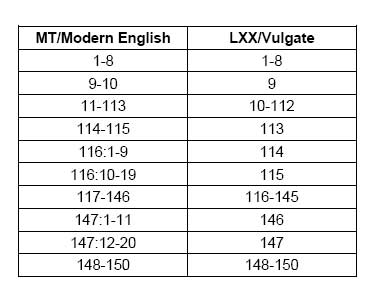There has been a clarification in connection to the Psalm book discovered in the Irish bog. Initial news reports said that the book was open to Psalm 83, which in most modern English translations is a prayer to wipe out the enemies of Israel. What no one noted is that they meant Psalm 83 in the Latin Vulgate, and the Latin Vulgate (like the Greek Septuagint it follows) is usually one chapter off of the Hebrew MT tradition and our modern English translations. So as it turns out — much to the dismay of all of those who interpreted this as some sort of sign from God — the book from the bog is open to Psalm 84 according to our modern translations.
Here is an excerpt from the recent Reuters story that announces the clarification:
The National Museum of Ireland announced Tuesday what it said was one of the most significant Irish discoveries in decades; an ancient Psalter or Book of Psalms, written around 800 AD. It said part of Psalm 83 was legible.
In modern versions of the Bible, Psalm 83 is a lament to God over other nations’ attempts to wipe out Israel and many commentators wondered at the coincidence of such a discovery at a time of heightened tension in the Middle East.
“The above mention of Psalm 83 has led to misconceptions about the revealed wording and may be a source of concern for people who believe Psalm 83 deals with ‘the wiping out of Israel’,” the museum said in its clarification.
The confusion arose because the manuscript uses an old Latin translation of the Bible known at the Vulgate, which numbers the psalms differently from the later King James version, the 1611 English translation from which many modern texts derive.
The difference in numbering is due to different ancient traditions of dividing individual psalms, especially for psalms without superscriptions. For example, Psalms 9 and 10 in the Hebrew MT tradition (which most modern English translations follow for psalm numbers) are combined in the Greek Septuagint and Latin Vulgate to form their Psalm 9. This combination is facilitated because MT Psalm 10 does not have a superscription. In fact, many scholars believe that the LXX tradition here is more authentic since when combined MT Psalm 9 and 10 share an acrostic pattern (the verses are in alphabetical sequence).
Here is a table showing all of the differences in psalm divisions between the two major traditions:

I wonder what speculation Psalm 84 will give rise to!
(Thanks to Jeremy for the heads up in a comment on my original post)



